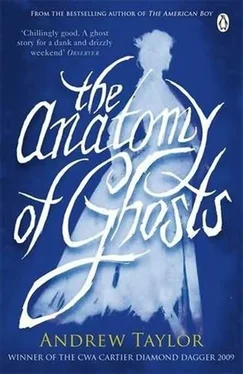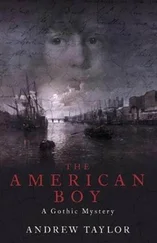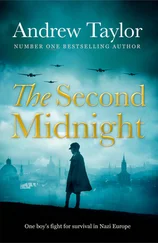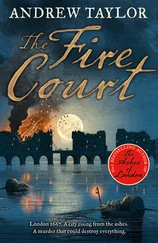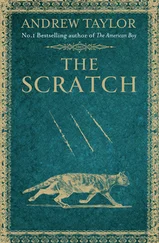Andrew Taylor - The Anatomy Of Ghosts
Здесь есть возможность читать онлайн «Andrew Taylor - The Anatomy Of Ghosts» весь текст электронной книги совершенно бесплатно (целиком полную версию без сокращений). В некоторых случаях можно слушать аудио, скачать через торрент в формате fb2 и присутствует краткое содержание. Жанр: Исторический детектив, на английском языке. Описание произведения, (предисловие) а так же отзывы посетителей доступны на портале библиотеки ЛибКат.
- Название:The Anatomy Of Ghosts
- Автор:
- Жанр:
- Год:неизвестен
- ISBN:нет данных
- Рейтинг книги:4 / 5. Голосов: 1
-
Избранное:Добавить в избранное
- Отзывы:
-
Ваша оценка:
- 80
- 1
- 2
- 3
- 4
- 5
The Anatomy Of Ghosts: краткое содержание, описание и аннотация
Предлагаем к чтению аннотацию, описание, краткое содержание или предисловие (зависит от того, что написал сам автор книги «The Anatomy Of Ghosts»). Если вы не нашли необходимую информацию о книге — напишите в комментариях, мы постараемся отыскать её.
The Anatomy Of Ghosts — читать онлайн бесплатно полную книгу (весь текст) целиком
Ниже представлен текст книги, разбитый по страницам. Система сохранения места последней прочитанной страницы, позволяет с удобством читать онлайн бесплатно книгу «The Anatomy Of Ghosts», без необходимости каждый раз заново искать на чём Вы остановились. Поставьте закладку, и сможете в любой момент перейти на страницу, на которой закончили чтение.
Интервал:
Закладка:
‘Good God,’ Elinor said.
It was too late. She had turned over that piece of paper and found on the back a sketch, the likeness of a girl with regular, pretty features, looking over her shoulder at whoever was taking the likeness with a coyly inviting smile. Her finger toyed with a ringlet. Underneath was the single word Richenda .
‘But this – this is so like -’
‘Yes.’ He stretched out his hand for the paper. ‘You must be growing warm, ma’am – pray allow me to feed the fire.’
On the other side of the brazier, the flames made Mr Holdsworth a stranger: half-silhouette, half-fire, all mystery. Richenda . The girl’s face and name came together in her mind with certain rumours about Morton Frostwick that had necessitated his abrupt departure from Jerusalem more than twenty years before. She recalled that there was a person still at college whom rumour (and Dr Carbury) had associated with him. As Soresby’s career showed, it was not easy for a poor and friendless sizar to defray the expenses of a University education, and in those days it had been even harder.
‘I recognize the face,’ Elinor said, studying the sketch. ‘See – do you not remark the likeness?’
‘Give it me, madam.’
‘In a moment. It might almost be Mr Richardson’s sister or daughter. But I know he has none for he told me once he was his parents’ only child and of course he is not married. Is it possible that this is not a servant girl at all, or any sort of girl, but -’
‘Yes,’ Holdsworth said. ‘Pray give me that paper.’
‘But, you see, this explains it.’
‘Explains what?’
‘Oh – many things. And, most recently, why Mr Richardson has been so complacent about allowing Mr Whichcote to find refuge in college.’
Holdsworth pulled another handful of papers from the valise. ‘This is not a pretty business, however one looks at it. I will not make it worse.’
She watched him feeding the last of the papers to the flames. She glanced at the sketch. It might be necessary for her to negotiate with Mr Richardson in the near future and he had no reason to grant her favours. Perhaps this would help tip the balance.
Holdsworth turned aside to empty the rest of the papers on to the fire. To Elinor it was as if he had reproved her, even rejected her, though God knew she had offered him nothing. He took out a pocket knife and slashed at the soft leather of the valise, chopping it into small fragments.
‘I do not know what I shall do,’ she said in a small voice.
She stood with her head bowed and the sketch of Richenda in her hand. She tried not to think of the future. Was not the present enough for anyone?
Holdsworth put down the knife and the ruined bag. He came towards her, making hardly any noise. For a big man, he moved quietly. She did not know what she would do. She did not know what she wanted, either.
The fire was dying. The air was growing cooler as the night advanced. She shivered, though whether it was from cold, fear, desire or a mixture of all three, she could not tell.
‘Let me put that paper on the fire for you, ma’am. It will be for the best.’
Elinor looked at him. What are you really asking? What am I choosing?
He came closer. She saw his face, the skin tinted orange by the light of the dying fire, and the hand he held out towards her. She did not move. His hand closed about her upper arm.
For a long moment, nothing happened. Then she turned towards him like a door swinging slowly on its hinge. His other hand slipped behind her waist. Frowning, she raised her head. He lowered his face and kissed her full on the mouth. She knew this was not possible. This must be a shameful dream.
Her lips moved under his. There was an alien softness there, a warmth, which she had not expected, and also the prickle of stubble on his skin. Anything was possible in dreams. Her lips parted, and so did his. He tasted of smoke and wine and darkness.
She pulled away from him and dropped the sketch on the fire. Richenda, the pretty girl with the coy smile, gained a final lease of life: she glowed with bright colours; she danced in the flames; she curled gracefully; and at last she blackened and crumbled away.
‘It’s growing cold, madam,’ Holdsworth said, in a voice so low she could hardly hear what he was saying. ‘You must go indoors. It would not do for you to catch a chill.’
It was only afterwards, as she lay in bed hugging herself and thinking of what had happened, thinking of the feel of him on her skin and the taste of him in her mouth, that she realized she had forgotten to tell John Holdsworth about the ghost.
46
Philip Whichcote did not sleep. As the long night hours drifted past, he lay in a paralysis of discomfort varied with stabs of cramp that became steadily more frequent and more acute.
He did not know who had attacked him, or why. Did they mean to leave him here to die? Did they mean to murder him?
The temperature dropped lower and lower. A full bladder caused him exquisite unhappiness until at last he lost control of it and there was a new element added to his misery. The bells of Cambridge chimed, muffled and distant, marking the hours of his suffering. He slipped into a trance-like state, neither waking nor sleeping.
A crack of metal roused him. Then another. The bolts were sliding back. He opened his eyes. It was growing light. There were footsteps behind him. He knew there was more than one person because he felt their hands on him and heard their breathing. A dark, coarse material was thrown over his head and pulled down over his shoulders. They lashed the material down with a strap passed around his neck.
They hauled him to his feet. But his legs gave way underneath him and he collapsed. His captors hooked their arms under his armpits, one on either side, and dragged him outside. He lost consciousness from the pain of it.
When Whichcote came to, he was again lying face down. Something was rattling and jolting his body. His limbs were no longer bound and his head was uncovered. The gag had been removed. His mouth was parched and his tongue felt swollen and alien. There was a foul smell in his nostrils and his face was moist.
Iron-shod wheels rattled on paving stones. He retched and brought out a mouthful of sour liquid. He tried to turn himself over and sit up. He called out, ‘Stop!’ but his mouth had lost the habit of speaking and the word came out as another mouthful of thin vomit.
He heard voices and the rumble of other wheels. The cart jolted over a kerbstone, swayed and came to a halt. The air was full of nagging voices, as vulgar and insistent as quarrelling magpies.
He rolled over and sat up. To his astonishment, there was a burst of cheering.
‘Make way for My Lord Shit in his chariot!’ a man shouted.
The cheers turned to laughter and catcalls. Whichcote looked about him. He realized that he was sitting in a handcart in front of the main entrance of Jerusalem College. The forecourt was crowded with college servants, dozens of them, men and women, waiting for Mepal to open the gates. Whichcote put his hand to his head. His wig and hat had gone. His coat was ripped and soiled.
Oh God. He was sitting in the night-soil cart in a pool of excrement before all the world.
All of a sudden the jeering diminished, though it did not die away. Tom Turdman let down the flap at the side of the cart with a great clatter, exposing Whichcote like a freak at Stourbridge Fair.
‘Look at his breeches!’ a woman screeched. ‘My Lord Shit’s pissed himself!’
The crowd parted, making way for two burly men in black who were advancing towards the handcart.
‘Good morning, Mr Whichcote,’ said the older man, who had a large red face and a rounded belly that went before him like a great cushion. ‘Here we are again. I’ve got four writs against you, I’m afraid. Unless you’ve the upwards of two thousand pounds in your pocket, I’m afraid I shall have to ask you to accompany me again to Mr Purser’s.’
Читать дальшеИнтервал:
Закладка:
Похожие книги на «The Anatomy Of Ghosts»
Представляем Вашему вниманию похожие книги на «The Anatomy Of Ghosts» списком для выбора. Мы отобрали схожую по названию и смыслу литературу в надежде предоставить читателям больше вариантов отыскать новые, интересные, ещё непрочитанные произведения.
Обсуждение, отзывы о книге «The Anatomy Of Ghosts» и просто собственные мнения читателей. Оставьте ваши комментарии, напишите, что Вы думаете о произведении, его смысле или главных героях. Укажите что конкретно понравилось, а что нет, и почему Вы так считаете.
